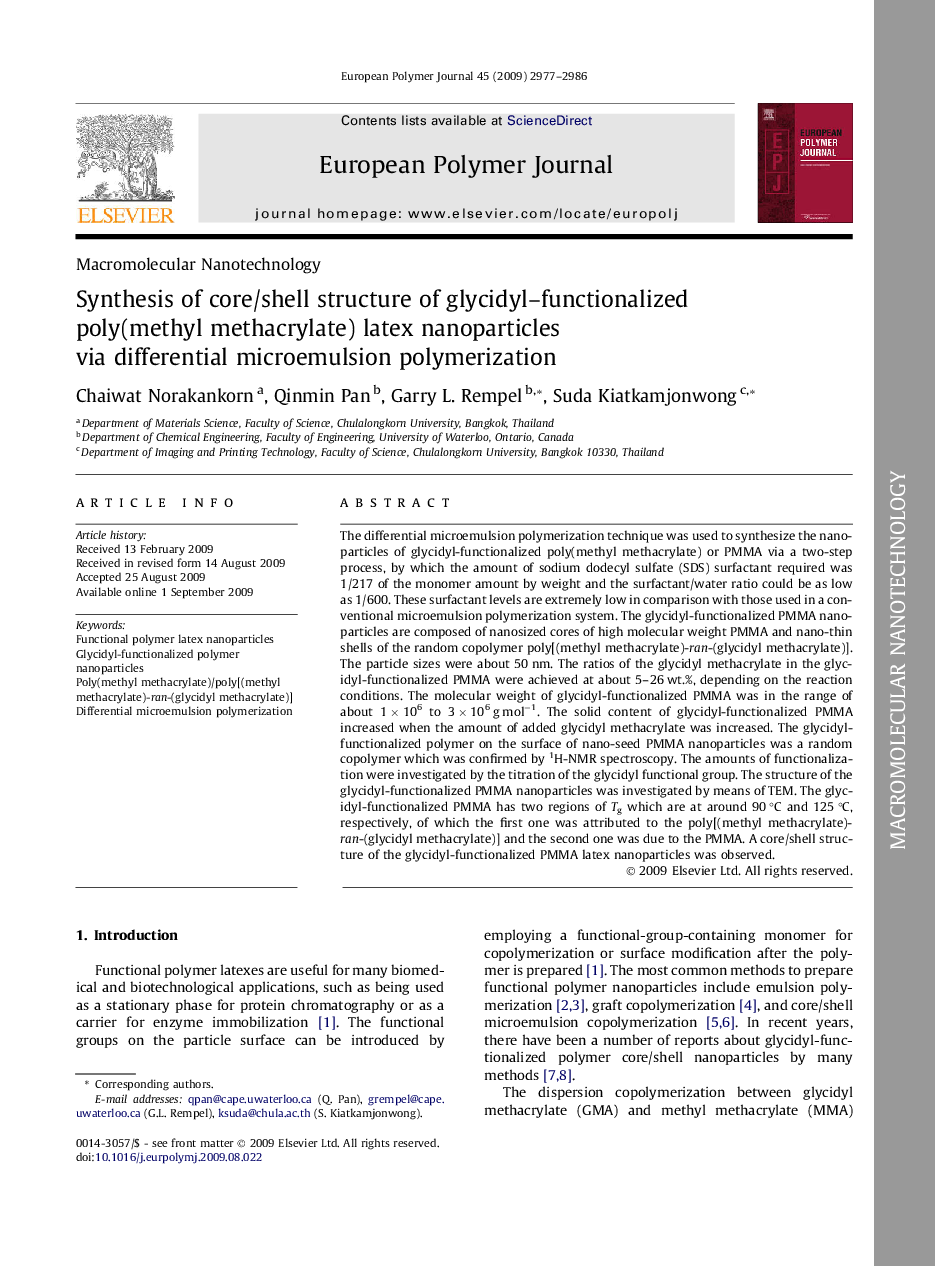| Article ID | Journal | Published Year | Pages | File Type |
|---|---|---|---|---|
| 1402665 | European Polymer Journal | 2009 | 10 Pages |
The differential microemulsion polymerization technique was used to synthesize the nanoparticles of glycidyl-functionalized poly(methyl methacrylate) or PMMA via a two-step process, by which the amount of sodium dodecyl sulfate (SDS) surfactant required was 1/217 of the monomer amount by weight and the surfactant/water ratio could be as low as 1/600. These surfactant levels are extremely low in comparison with those used in a conventional microemulsion polymerization system. The glycidyl-functionalized PMMA nanoparticles are composed of nanosized cores of high molecular weight PMMA and nano-thin shells of the random copolymer poly[(methyl methacrylate)-ran-(glycidyl methacrylate)]. The particle sizes were about 50 nm. The ratios of the glycidyl methacrylate in the glycidyl-functionalized PMMA were achieved at about 5–26 wt.%, depending on the reaction conditions. The molecular weight of glycidyl-functionalized PMMA was in the range of about 1 × 106 to 3 × 106 g mol−1. The solid content of glycidyl-functionalized PMMA increased when the amount of added glycidyl methacrylate was increased. The glycidyl-functionalized polymer on the surface of nano-seed PMMA nanoparticles was a random copolymer which was confirmed by 1H-NMR spectroscopy. The amounts of functionalization were investigated by the titration of the glycidyl functional group. The structure of the glycidyl-functionalized PMMA nanoparticles was investigated by means of TEM. The glycidyl-functionalized PMMA has two regions of Tg which are at around 90 °C and 125 °C, respectively, of which the first one was attributed to the poly[(methyl methacrylate)-ran-(glycidyl methacrylate)] and the second one was due to the PMMA. A core/shell structure of the glycidyl-functionalized PMMA latex nanoparticles was observed.
Graphical abstractTEM illustrates that glycidyl-functionalized PMMA latex nanoparticles synthesized by differential microemulson polymerization via a two-step process, required an SDS-to-water ratio of 1:600 and a surfactant-to-monomer ratio of 1:217, have a core/shell structure of PMMA/poly[(methyl methacrylate)-ran-(glycidyl methacrylate)].Figure optionsDownload full-size imageDownload as PowerPoint slide
